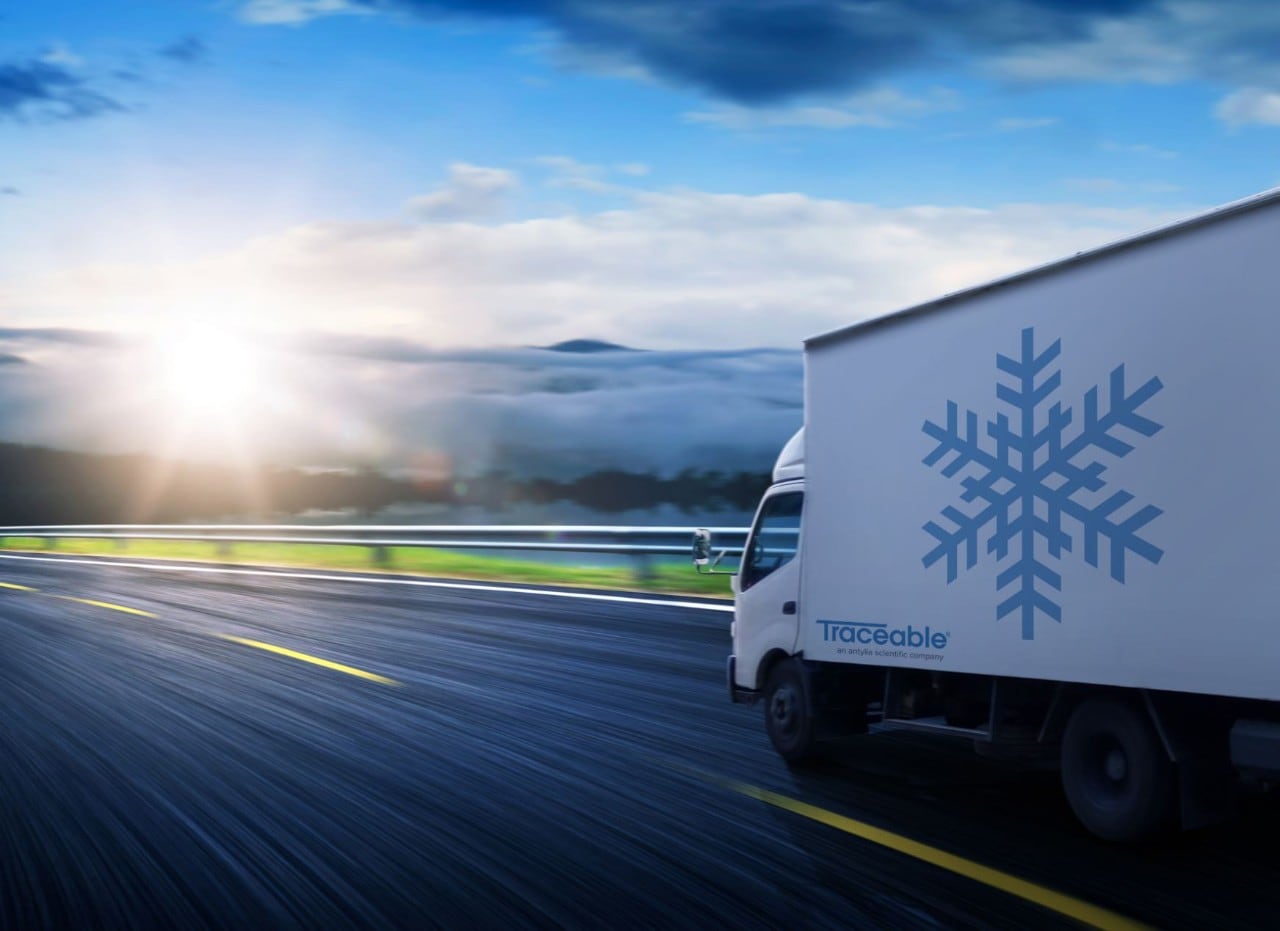Meeting the Cold Chain Challenge
Whether your cold chain is short or long, each hand-off opens the door for risk. It's often not enough to assume your product integrity is safe. Without reliable, consistent temperature monitoring and data logging, especially during storage and transport, you will not know if your product arrives at your customer uncompromised.
What type of storage should I consider?
Depending on the sector, the product, or the cold chain structure, storage considerations can range from large drive-in spaces to small refrigerators in a clinic.
With pharmaceutical and life sciences, cold chains require storage of medicines, vaccines, and other products in temperature-controlled packaging that must be maintained within strict temperature boundaries. For example, most vaccines need to be stored between 2 to 8°C (36 to 46°F) and temperature outside this range will compromise the vaccine. Similarly, temperature control is a critical food safety element, as it helps reduce spoilage and prevent foodborne diseases. Fresh produce must be kept at 0 to 16°C or colder, while frozen and deep-frozen foods must generally be kept at 0 to -25°C (32 to -13°F) or colder.
The ability to measure, monitor, and data log temperature becomes a critical aspect of temperature management and a requirement for regulatory compliance.
All storage situations will offer nuances and temperature monitoring needs will vary but they generally fall into three categories:
- Basic Monitoring
- Data Logger Monitoring
- Cloud Monitoring
Measure and monitor basic tempature parameters
Automatically measure, monitor and record parameters over a defined time, allowing for the download and analysis of collected data
Securely and wirelessly monitor in real time, receive notifications, cloud-based storage, and built-in reports
As the need increases for real-time temperature monitoring, more data management capacity, and the ability to react quickly to regulatory inquiry; cloud-based temperature monitoring is positioned well to meet the demands of the cold chain. In part, FDA regulatory code 21 CFR 205.50 refers to both the importance of storage and record keeping in the pharmaceutical industry:
- Storage - Appropriate manual, electromechanical, or electronic temperature and humidity recording equipment, devices, and/or logs shall be utilized to document proper storage of prescription drugs.
- Record keeping - Records described in this section that are kept at the inspection site or that can be immediately retrieved by computer or other electronic means shall be readily available for authorized inspection during the retention period.
Like the pharmaceutical industry, the food industry is regulated through the Federal Drug Administration (FDA) and the Food Safety Modernization Act (FSMA). Two provisions for consideration in the Food Industry are HARPC (Hazard Analysis and Risk Based Prevention Controls) and the need for monitoring and record keeping.
What does HARPC require the food industry to do?
- Identify food safety and adulteration hazards associated with foods and processes
- Implement controls to minimize the hazards
- Verify the controls are working
- Design and implement corrective actions to address any deviations outside set control parameters
As the practical and regulatory demands of storage within the cold chain continue to evolve, it is important to ensure your temperature monitoring and data logging capabilities also evolve, particularly as technology moves to wireless connectivity and cloud-based data storage. With temperature being a central component to managing spoilage and preventing foodborne diseases, monitoring and record keeping is critical. Cole-Parmer’s wide range of temperature measurement and data logging devices has been designed to monitor and manage the storage of your valuable product.
Is special transporation required for cold chain products?
An important consideration for product quality and integrity is monitoring temperature while product is being transported—all to answer the question “Did my product stay at the appropriate temperature while it was being transported?”
The movement of product through the cold chain can involve various types of transportation, various sizes and quantities of packages, and distances spanning across the city or the continent—all of which makes it challenging to answer this question with confidence. It is crucial to measure, monitor and log temperature during transport, not only to ensure confidence but also for regulatory compliance.
Regulation requires the cold chain is maintained and not compromised, and back-up records are available as proof. In the case of the pharmaceutical industry, this is outlined in 21 CFR 203.36 and 21 CFR 211.150. In the food industry, this is outlined in the Food Safety Modernization Act (FSMA) Section 111: Sanitary Transportation of Human and Animal Food.
What key requirements from FSMA Section 111 identify the importance of temperature monitoring and recording?
Vehicles and transportation equipment: Design and maintenance of vehicles and transportation equipment must ensure the food it transports is kept safe. For example, vehicles must be suitable and adequately cleanable for their intended use and capable of maintaining temperatures necessary for the safe transport of food.
Transportation operations: Measures need to be taken during transportation to ensure food safety. This includes adequate temperature controls, maintaining temperatures, and preventing contamination of ready-to-eat food from touching raw food, protecting of food from contamination by non-food items in the same load or previous load, and protection of food from cross-contact such as the unintentional incorporation of a food allergen.
Records: Maintenance of records of written procedures, agreements and training are required of carriers. The required retention time for these records depends upon the type of record and when the covered activity occurred but does not exceed 12 months.
Advances in portable, single-use, wireless connectivity and cloud-based temperature monitoring and logging devices have made it easier to follow product as it is being transported—not only to ensure the product has been maintained at the proper temperature, but also to offer documentation of the compliant transportation conditions. Antylia Scientific (formerly Cole-Parmer) offers a broad range of Digi-SenseTM and TraceableTM temperature measurement and data logging devices that provide accuracy, reliability, real-time monitoring, and regulatory compliance—all designed with your confidence in mind.



